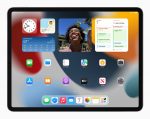It’s not often you’ll find me jumping in to defend Facebook, Microsoft, and game streaming. They’re an unholy trinity of BS in and of themselves, so you know someone must be up to some really stupid shenanigans for me to do so. Enter our good pals in Cupertino.
Microsoft is due to release their Project xCloud game streaming platform next month. While the whole concept of streaming is a bit shit in my opinion, they are offering a fairly nice deal here. It’s included with a Game Pass subscription, at a fairly inexpensive price to boot, and will allow you to play a whole ton of Xbox titles across a whole host of devices. Well, unless yours is fruit themed.
Apple, in their infinite wisdom, has laid the ban hammer down on the xCloud app for iOS, in a move that has reportedly angered Microsoft. This isn’t the first time that they’ve removed a popular platform from their devices, like when they nuked Google Maps back when iOS 6 came out. However, it’s their justification that’s just absolutely baffling.
Speaking to Business Insider, an Apple representative said they wanted their platform to be a “safe and trusted place”. Therefore, the company requires that all games on the platform must undergo a review and charting process, and that they simply don’t have the man peoplepower to go through all that content. They have also cited App Store guideline 4.7, which bans apps from executing external code that is not embedded in the binary.
xCloud isn’t the only game streaming app that is blocked from iOS. Both Stadia and GeForce Now are absent from the platform. Facebook Gaming has also faced numerous hurdles getting their app approved, even though it’s primarily used for watching other people play. Not unlike Twitch, which is allowed on iOS.
“We’re staying focused on building communities for the more than 380 million people who play games on Facebook every month—whether Apple allows it in a standalone app or no,” COO Sheryl Sandberg told The Verge.
Now, there’s a few things worth noting here. For one, Apple does not apply the same regulations to video and music streaming services. You don’t have Apple asking to check every single Spotify song or YouTube video to make sure it’s safe for their users.
Secondly, these game streaming apps function on a fundamentally similar way to video streaming. There is no external code being executed by the app. It’s simply decoding a video stream, and sending button inputs back to a server. It makes little difference if that stream is coming from a movie stored on a hard drive somewhere, or coming out the back of a gaming server. So neither of their justifications make any sense.
What does make sense is that these services compete with Apple Arcade. While it’s worth noting that games on that service aren’t really comparable to what’s on xCloud, maybe Apple has something else cooking that we don’t know about. It certainly appears like they’re blocking competitors to push their own platform, which would be extremely anti-consumer if true. And if that’s not the case, well, I can’t think of any other logical reason behind this.
Google, meanwhile, doesn’t seem to have a problem with any of this. They’ve allowed all above mentioned services on their Android platform. You can download them right now, off the Play Store, with no caveats. Indeed, as Microsoft correctly pointed out in an interview with The Verge, “Apple stands alone as the only general purpose platform to deny consumers from cloud gaming and game subscription services like Xbox Game Pass.”
Which brings me full circle to why I stopped using iOS and switched to Android in the first place. I don’t particularly like Google as a company, but you cannot deny that as a platform, Android is far more flexible in terms of the types of software it offers. They don’t even pigeonhole you into having to use the Play Store. I get a lot of my open source apps from F-Droid or other repositories. There’s no need to hack my own phone just to run perfectly legit apps, just because the handset maker doesn’t deem them kosher.
I do get Apple’s desire to limit malicious code on their devices. Which is something Google is admittedly bad at. However, how could you claim with a straight face that products from Xbox are potentially malicious, or may harm iOS users? That’s beyond absurd, and moved into the realm of Kafkaesque.
Photo by Steve Snodgrass via Flickr




